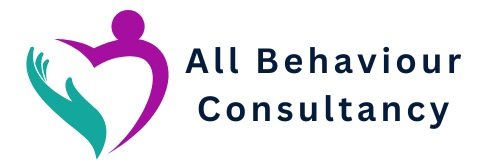Accept Identity Move (AIM) Training
Georgiana Koyama, our Founder, with Dr Mark Dixon
On Wednesday 19th Sept Kirsty Angel and Georgiana Koyama attended the Accept Identify Move (AIM) Training with Dr Mark Dixon in London.
We wanted to attend AIM training to increase our support to individuals that we work with, as well as our team. Mindfulness and Acceptance and Commitment Therapy(ACT) underpins the AIM curriculum.
The one thing that resonated with us right at the start of the morning is that children and adults who are able to use language to communicate and have the ability to infer and reason, also have the ability to develop negative constructs about themselves (e.g., “I’m a bad person”, “I’m stupid”, etc.).
ACT discusses six core principles that can help people defuse these negative constructs by changing the function of these (defusion), and work on committed actions towards their values.
This approach is diverse and can help a wide range of children and adults including those, but not limited to, Autism, ADHD, Social Emotional Behavioural Disorders and those with problems about their mental health.
The below information is relevant for children or individuals who are able to express their worries about the past or the future in language that others can understand. If you are familiar with assessments such as the VB-MAPP, this curriculum and this sort of approach is unlikely to be appropriate for them.
This is more suited to children who are in mainstream school and require less support with language acquisition but require support with how they process and manage their thoughts or emotions.
In short, for children or adults who are predisposed to fixate on certain stimuli or the environment. If you are interested in learning more about ACT from a personal perspective to use in your own daily life, you may want to consider reading The Happiness Trap by Russ Harris, which you can purchase on Amazon.
What is Mindfulness and how is it applicable to learners with Autism?
Scientific data has shown that Mindfulness practice has been effective in helping all individuals to increase self-control, self-care skills and empathy (Hwang & Kearney, 2013). Additionally, research has shown consistent practice increases stimulation of the prefrontal cortex which leads to, better focus and attention (Holzel & Lazar, 2011). Furthermore, mindfulness exercises have been shown to decrease anxiety, and impulsivity, alter mood change (positively). The pre-frontal only fully develops at the age of 22 in neurotypical adults, so in the context of children with ASD they require additional support in this area, hence the need for mindfulness in our practice.

